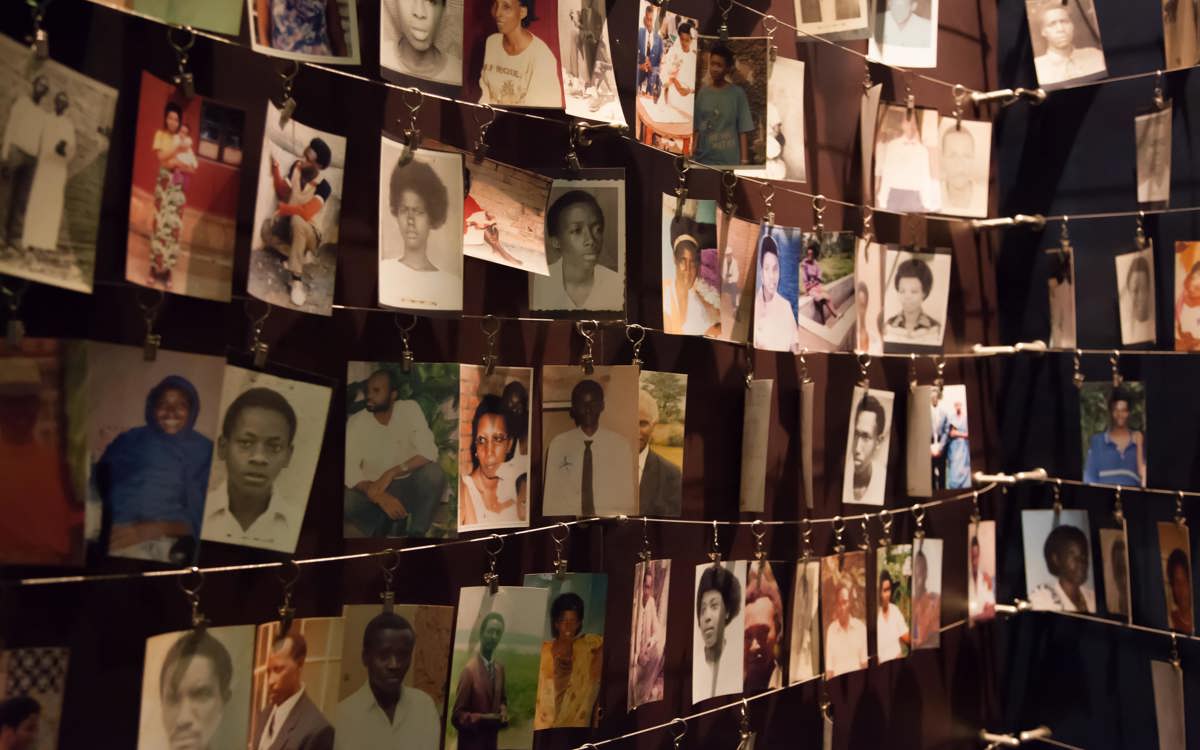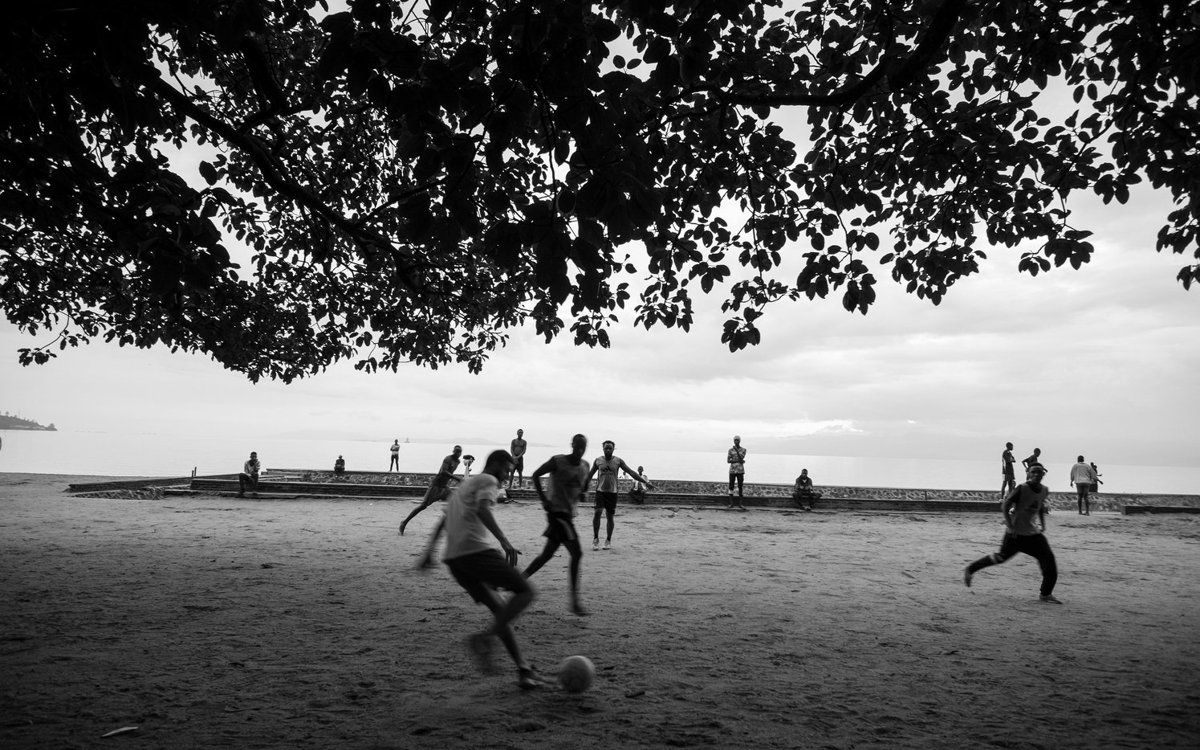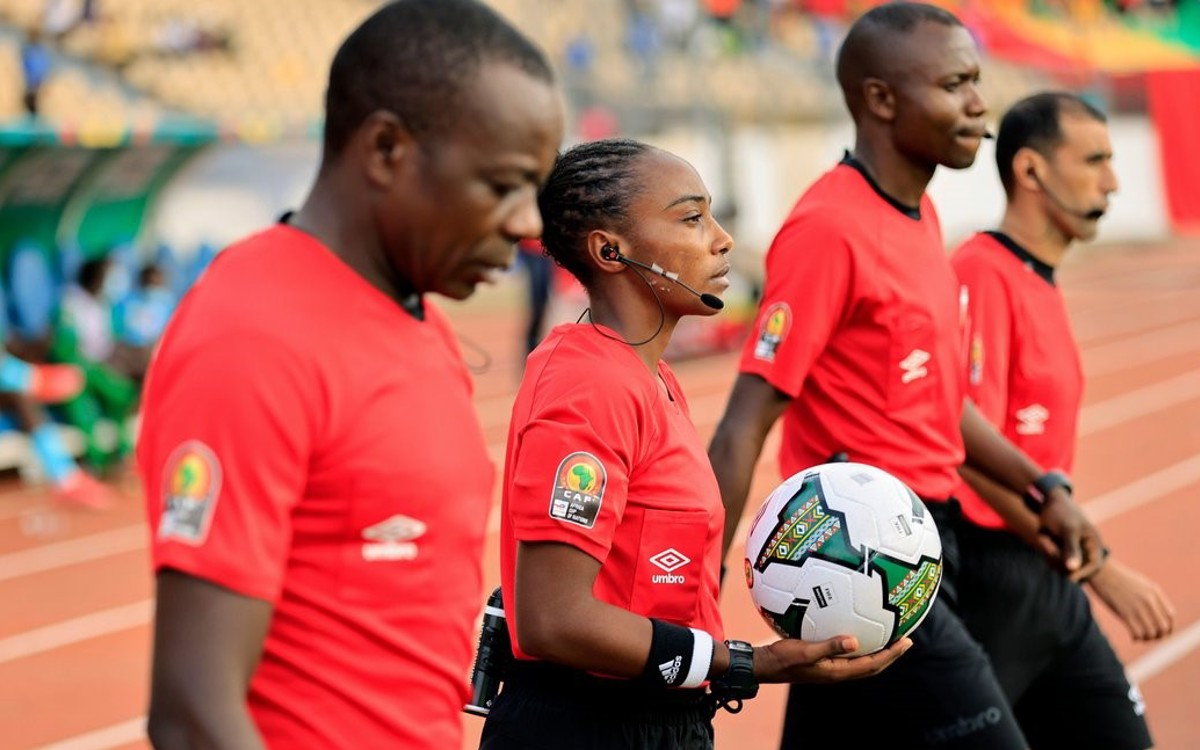How sport played a role both in fracturing and helping to heal a nation. By Sylvestre Nzahabwanayo, University of Rwanda

How sport played a role both in fracturing and helping to heal a nation.
By Sylvestre Nzahabwanayo, University of Rwanda
Over 100 days in 1994, more than a million Rwandans were slaughtered in the genocide against the Tutsi. Millions more were made refugees or internally displaced, and between 150,000 and 250,000 women were raped. The genocide traumatised Rwanda and tore its social fabric apart. The country was left with the almost unimaginable challenge of how to rebuild a broken society, heal wounds, and create trust and unity among its people. Against this background, the government engaged with different tools to promote peace and reconciliation, with sport among them. This article brings together some stories which help give a snapshot of why and how sport came to be described as a ‘special pillar’ of Rwanda’s reconciliation and recovery.
Before the genocide
The genocide followed decades of conflict and division in Rwanda, the foundations of which were laid during Belgian and German colonisation. It was during colonial rule that discrimination and rigid systems of ethnic identity were sanctioned and reinforced, including the introduction of ethnic identity cards in the 1930s.
Sport, too, bears the imprint of European colonisation. Before the arrival of the colonisers, Rwanda had its own sporting traditions, including wrestling, running, high-jumping, and throwing, with their own place in its culture. These were not only seen as displays of skill and strength but as a way to build collaboration, courage, and endurance. In the 1920s, the missionaries brought with them a range of ‘modern’ sports, including football, volleyball and basketball. Football, by virtue of its popular appeal, was seen as a potent tool to promote their particular faith and convert Rwanda’s people to their own religious doctrine.
In a relatively turbulent post-independence period, sport thrived and grew throughout the country. The popularity of football in particular soared to become Rwanda’s most beloved sport, with each province having its own football team. In 1984, Rwanda took part in the Olympic Games for the first time. Athletes included the long-distance runner Marcianne Mukamurenzi whose unusual training drew international attention: Mukamurenzi worked mail carrier and messenger for the Rwandan Ministry of Youth, Sport, and Culture, zig-zagging back and forth on foot across Kigali’s hilly terrain to make her deliveries.
But sport was far from free of political and ideological influence. When the liberation war erupted in 1990, sport in Rwanda took on a different orientation. With many leagues funded by political sponsorship, football became a tool for the radicalisation of a nation, with clubs and supporters divided along ethnic, political, or regional lines. Politicians sought to weaponise the energy and discontentment of young fans, with political rallies taking place in sports stadiums. Later, the first militias would be recruited from football clubs and supporter groups.
It was during this civil war that the use of sport as a tool for unity and reconciliation among Rwandans timidly began. During a ceasefire in 1993, football and volleyball matches between different battalions took place, seeking to convey the message that there is room for coexistence, cooperation and friendship. Competitions took place between the Rwandan Patriotic Army (RPA) and Kigali teams in the Mulindi military camp where the RPA was based, as well as visits by the Mukura Victory Sport football team and Buhiri Volleyball Club.
But when the genocide began, bloodshed took over. Rwanda’s biggest sports stadium, the Amahoro, became a United Nations protected site, crammed with 12,000 people desperately seeking refuge from the mass killings. Other sports stadiums – such as the Gatwaro stadium in Kibuye – were themselves the sites of massacres, with many thousands slaughtered inside after being promised safety.

A footballer’s story
Among the thousands killed and maimed in the genocide were many Tutsi and moderate Hutu sportsmen and women, managers, trainers, administrators and fans. But there is one survivor who would later say he owed his life to sport and would go on to become a figurehead for sport’s peacebuilding role in Rwanda.
Footballer Eric Eugène Murangwa, then 19, was a goalkeeper for the popular Rwandan football club Rayon Sport. In the early hours of 7 April 1994, gangs of Hutu militias tore through his neighbourhood with machetes and machine guns. It wasn’t long before they arrived at Murangwa’s home, where he was beaten and ordered to lie face-down on the floor.
Murangwa feared for his life, but a bizarre twist of events intervened. With the help of a photo album, the soldiers recognised him as Rayon Sport’s beloved goalie – ‘toto’ meaning ‘young one’ – the nickname by which Murangwa was known to fans of Rayon Sport. He would later describe how the Hutu soldiers told him to get up from the floor and, instead of killing him, sat beside him for several minutes talking about football and a recent game between Rayon Sport and another team. Murangwa was allowed to live that day – but he was far from safe.
It was then that Murangwa’s Hutu teammates – one, Longin Munyurangabo, in particular – stepped in to protect him, risking their own lives in the process. Murangwa later described in interviews how Longin and his teammates gave him protection, food and hope. They negotiated with militia, and bribed them with their own money and with football kits to keep him safe. Later, after helping Murangwa get to safety against all odds, Longin was accused of treachery and killed.
‘What my team-mates did for me, and indirectly for family, was the reason I survived the genocide,’ Murangwa later said. ‘I started playing sport just because it was fun. It was only during the genocide that I realised sport could teach you how to be human.’
Murangwa went on to set up Football for Hope, Peace and Unity – an organisation dedicated to using football to promote reconciliation among young people and communities. Its ‘football for peace training’ helps to promote trust, teamwork, conflict resolution and social responsibility, while fighting prejudice, intolerance and hatred in communities. Today, Murangwa continues this work through the Ishami Foundation which focuses on communicating the lessons of the past through both sport and storytelling. Ishami is a Kinyarwanda word meaning ‘branch’ and symbolising resilience, recovery and connection.

‘That first trust’
Rwanda’s first public gathering after the genocide was a football match. Thousands came out of hiding for the first time to watch Rayon Sport take on its biggest rival, Kiyovu Sports. Murangwa describes the game as restoring a ‘sense of life’. ‘For the first time since the genocide’, he wrote, ‘Rwandans gathered to celebrate the return of peace and manifested hope for the future’.
It was to be the first of many matches organised and played around the country to heal the nation and encourage national unity. In the words of another survivor and football fan Didier Bana: ‘Football became an engine for forgiveness, reconciliation and unity when families of genocide victims and genocide perpetrators met on the football field as players or as fans supporting together. A number of tournaments at local and national level were organised to raise awareness and encourage national unity. Football helped people to come together for a common cause.’
Football, basketball, and other sports became part of a concerted effort by the government to help create a peaceful society, including investment in the construction and promotion of new sports infrastructure and events. In 1999, the National Unity and Reconciliation Commission of Rwanda was established to promote social cohesion and equality, with a mandate of making ‘never again’ a reality. It, too, used sport vehemently as a way to fight the genocide ideology and build unity, hope, friendship and fraternity, particularly focusing on Rwanda’s youth. The NURC worked closely with the Ministry of Sports, the Rwanda National Olympic Committee, and other public institutions to organise sports events to convey messages of peace and reconciliation.
Later, the Commission turned to sport to help in the challenge of how reintegrate those found to have perpetrated the genocide back into their communities. It organised a series of football matches followed by events at which perpetrators, survivors, and families of those killed came together. In 2009, a project coordinator for the Commission described the approach: ‘The sports makes the first entry,’ he said ‘and it helps them come closer. We have seen it working. We have seen people now accepting them, impressing them, talking to them and at least that trust, the first trust, is built’.
Sport would be used to try to bridge other divides too. Many genocide survivors were women, thousands of whom had been raped, traumatised, and had lost their homes, families and livelihoods. While sport seemed like an obvious tool to bring together Rwanda’s male population, football and other sports were still regarded by many as ‘off limits’ for women and girls.
But in 1997, a returning Rwandan refugee Felicite Rwemarika sought to challenge the stereotypes that had prevented women from enjoying sports, believing that it had the potential to bring hope and confidence to women who had been left, as she described them, with 'no more value for life'. Rwemarika founded the Association of Kigali Women in Sports, which helped to introduce football to Rwandan women and girls and worked with them to restore self-esteem, rebuild social networks and skills, and lift loneliness and despair.
Other inspirational figures include Grace Nyinawumuntu, who lost both her parents in the genocide. Nyinawumuntu learned to play football despite opposition from her community, who believed it was a boy's game, and would eventually meet her first coach – the same Felicite Rwemarika – who supported her journey to play professionally. Nyinawumuntu would go on to become the first woman to referee at a national level in Rwanda in 2004 and the first woman to coach a national football team in Rwanda in 2008.
Although the participation of women and girls in sport lags behind that of men, it is partly thanks to the efforts of these and other sportswomen that Rwanda now has around 100 women’s football teams and holds the African record for the number of FIFA-certified female football players. Later this year, Rwandan referee Salima Mukansanga will make history as one of the first three women ever to officiate at a FIFA world cup.

Never again
Today, the legacies and memory of the genocide can still be seen and deeply felt in Rwandan sport. The role of sport as an instrument of peace remains central to the activities of our national sporting federations and associations. Genocide Memorial Tournaments are regular features across sports as diverse as swimming and taekwondo, while major sporting events such as the Kigali International Peace Marathon and the Rwanda Peace Cup continue to commemorate the lives that were taken. Meanwhile, the Rwandan Ministry of Sport continues to promote sport as a pillar of social transformation and development for the nation – not only for its role in promoting social harmony but also to improve health, employment, and economic prospects.
More indirectly perhaps, the legacies of 1994 are present in the growing popularity of sports such as cricket, which was introduced to Rwanda by returning refugees who had learned the game during their years in exile in countries like Kenya and Uganda. More than 20 years later, Rwanda has more than 24 cricket clubs and, in 2017, opened its first ever international cricket stadium. Unlike football, cricket has no associations with the conflict of the past, which can contribute to its ability to unify different groups.
Cycling, too, has become another vehicle of transformation, recovery, and hope. Its journey reached international audiences through the 2012 documentary Rising from the ashes, which tells the story of the development of Rwanda’s first national cycling team, ‘Team Rwanda’ – a group of young genocide survivors who made history representing Rwanda internationally and qualifying for the London 2012 Olympics. In 2025, the International Cycling Union will hold its world championship in Kigali, Rwanda, and it’s hoped that all Rwandans will continue to rally around the Rwanda cycling team, regardless of historical background, as they cycle through the land of a thousand hills and, perhaps, a little further away from the past.
Dr Sylvestre Nzahabwanayo is Associate Professor in the College of Education at the University of Rwanda.
Images (from top): Kigali Genocide Memorial by by Andy Wallace via Flickr, licensed under CC BY-NC 2.0. Football game in Gisenyi by SFM Archivio Storico/Alamy. Referee Salima Mukansanga by Reuters/Alamy.
All content published by The ACU Review is copyright of the Association of Commonwealth Universities or its licensors and may not be reproduced without written permission from the Association of Commonwealth Universities. Please contact [email protected] with enquiries.
